#vegetable farming fertilizer
Explore tagged Tumblr posts
Text
Understanding NPK Analysis in Different Types of Manure: A Guide for Farmers
Manure is one of the most cost-effective and environmentally friendly fertilizers available to farmers. However, not all manure is created equal. Understanding the nutrient composition—commonly expressed as NPK (Nitrogen, Phosphorus, Potassium)—is crucial for optimizing crop yields and soil health. Here’s a detailed breakdown of the NPK analysis for common types of manure, along with…
#chicken manure benefits#composting manure#cow dung farming#crop-specific fertilizers.#farmers trend#farming best practices.#goat manure fertilizer#manure NPK analysis#manure types comparison#nitrogen-rich manure#organic farming techniques#organic fertilizers#phosphorus in manure#pig manure composting#potassium in manure#rabbit manure nutrients#sheep manure uses#soil fertility tips#sustainable farming#vegetable farming fertilizer
0 notes
Text
September 2024: The Days Leading To Our Nineteenth Anniversary
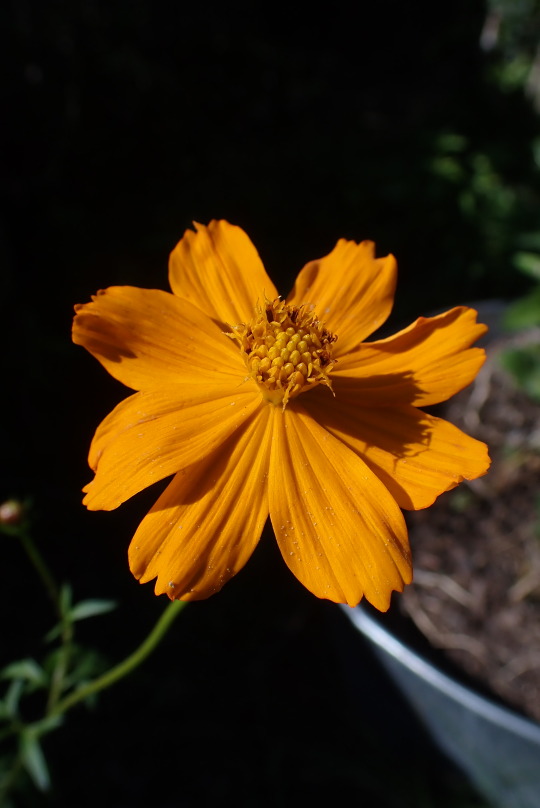
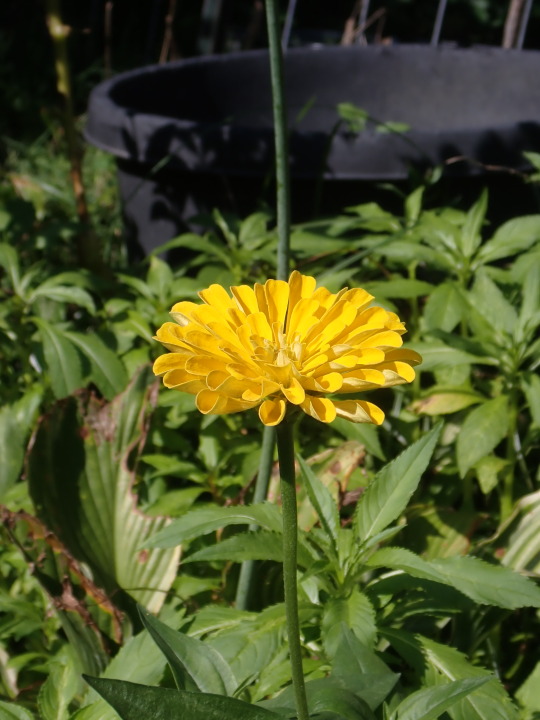
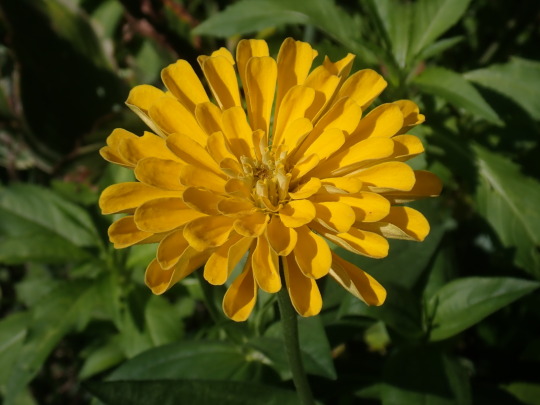
Wednesday harvest:
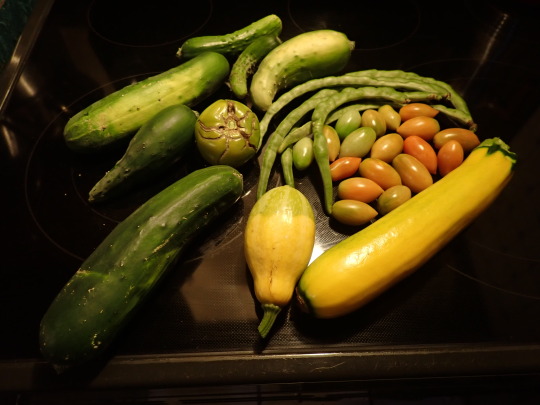
We cleared out the summer vegetables to make room for the cool season vegetables:

If no one else does, he wants to hear what is on your mind:
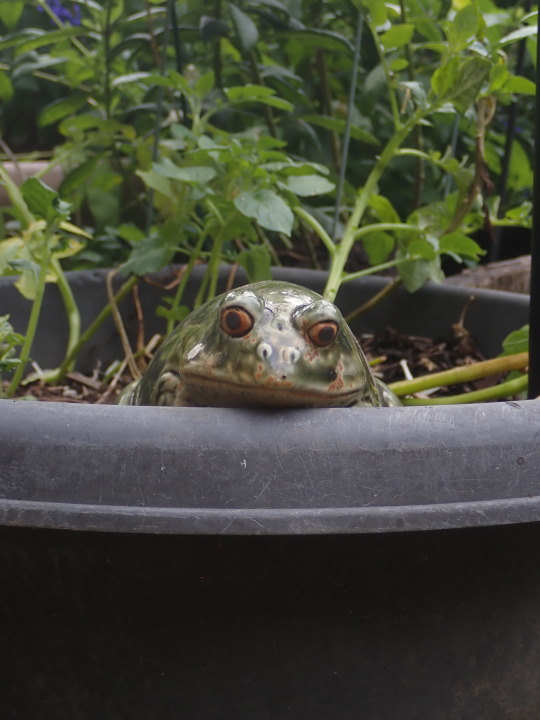
We're still working on this bed but the goal is pollinator magnet:
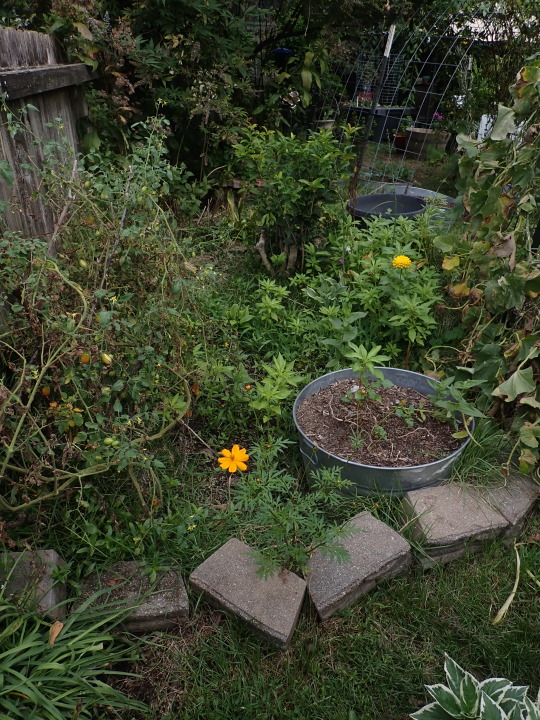
It came in the mail:
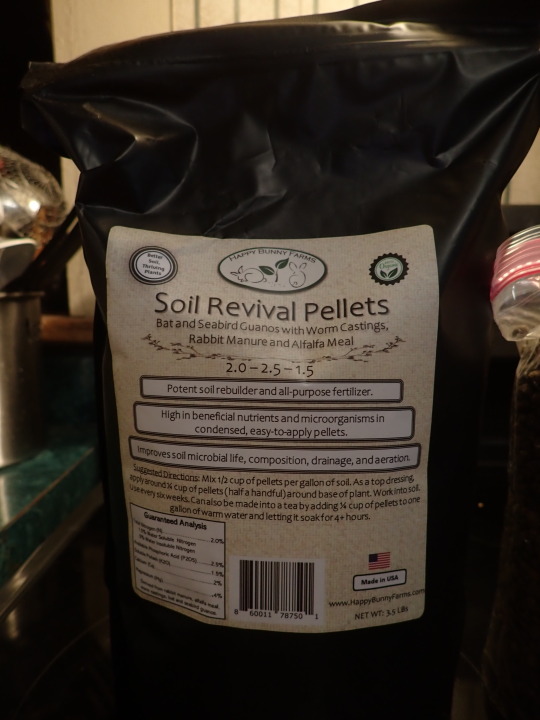
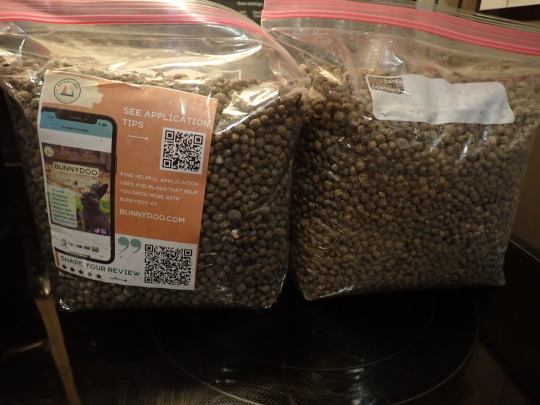
Anniversary flowers:
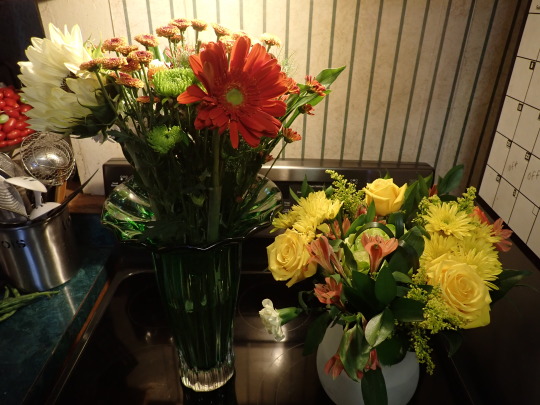
Sunday harvest:
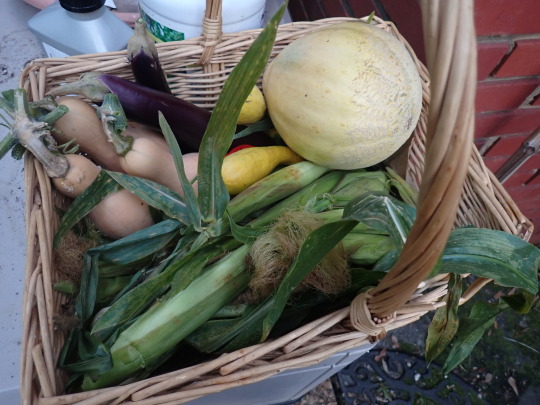
Cool season plantings.
Kale:
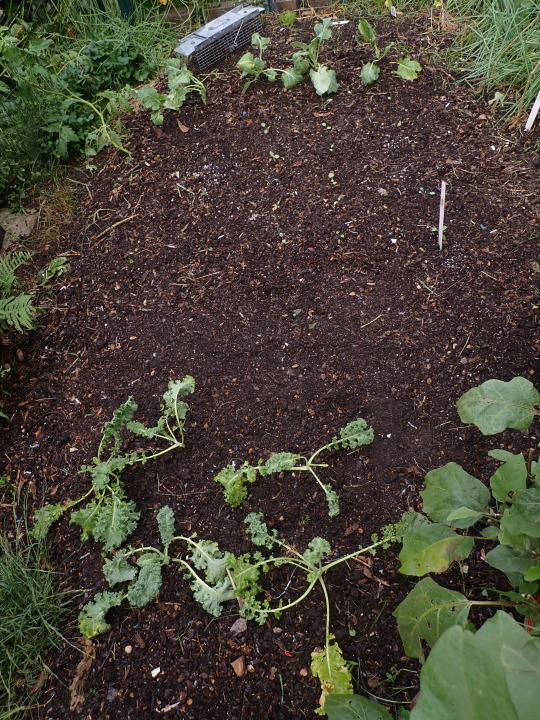
Cabbage:
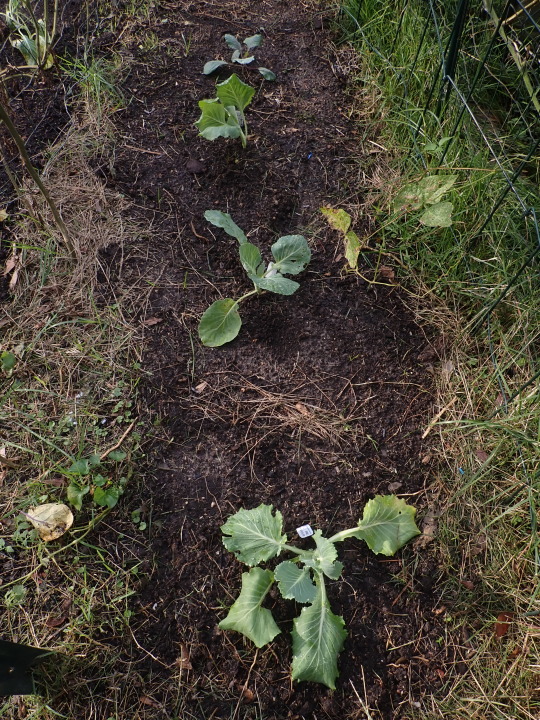
Swiss chard, brussels sprouts, bush beans, broccoli & cauliflower:
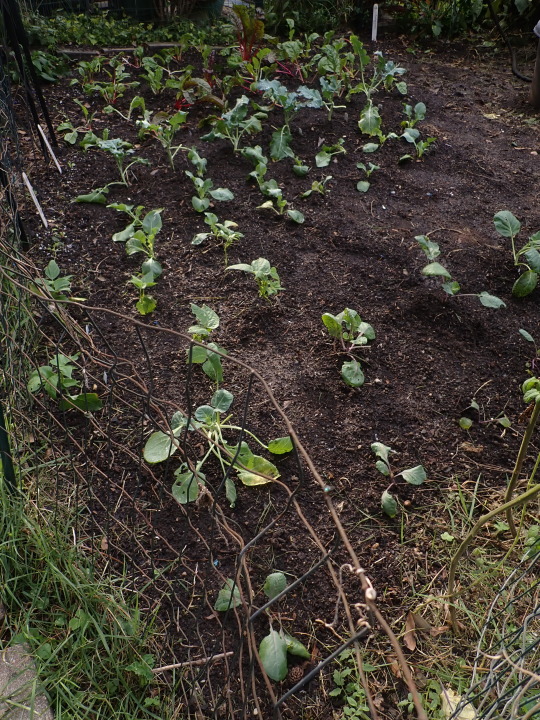
Spinach:
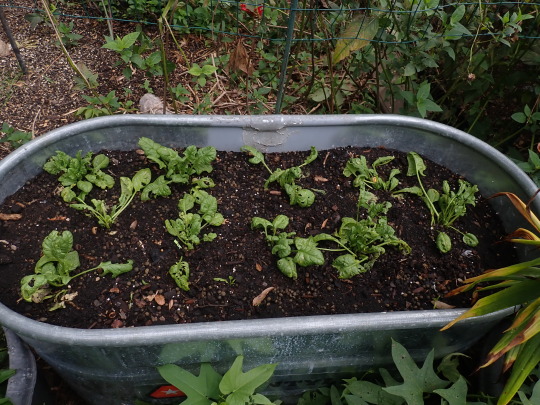
Swiss chard & peas:
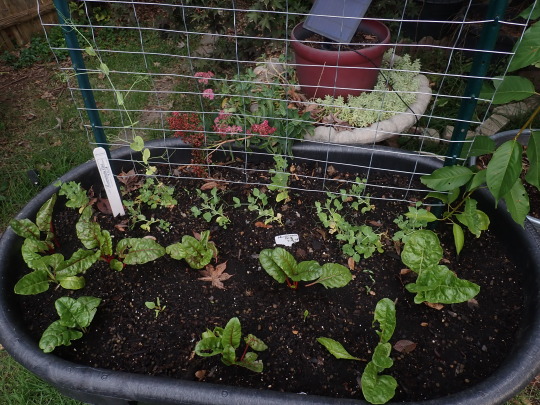

Anniversary day dinner:
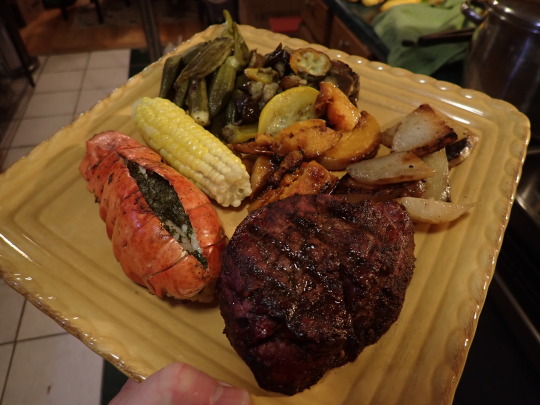
Lost soul:

We trekked over to Arkansas to check out a lake at a wildlife refuge. The road to the lake was out so no photos of the lake but have these photos of crossing the Mississippi River back into Tennessee:


Tuesday back at the house:

My queen working magic:
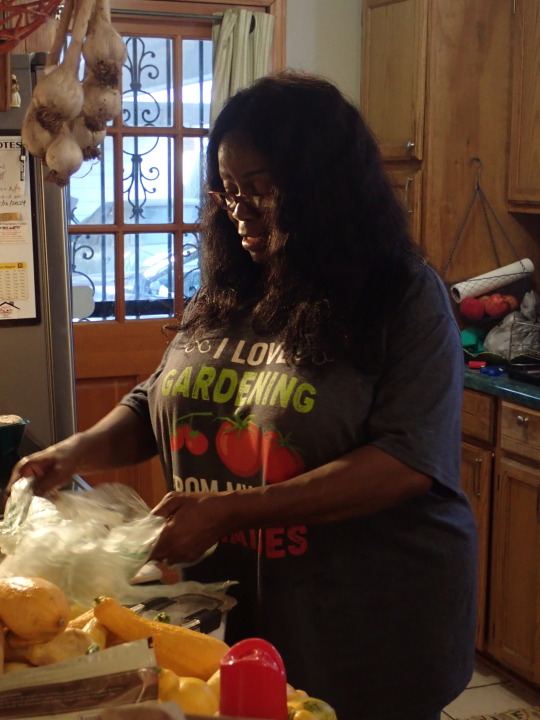
Tuesday on the grill:
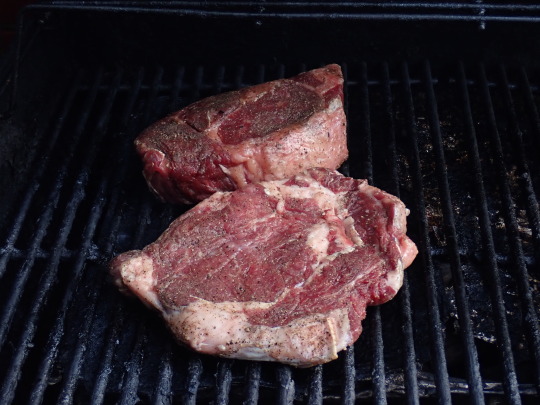
Tuesday dinner:
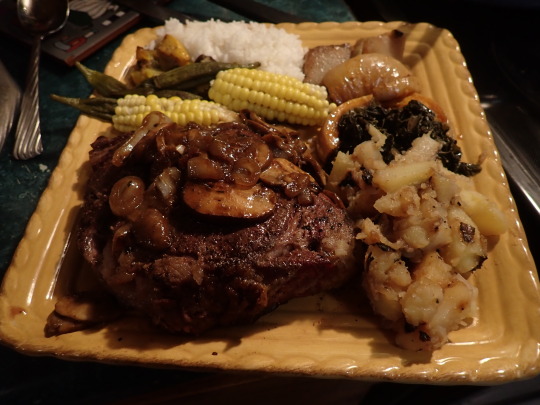
#anniversary#wedding anniversary#nineteenth anniversary#flowers#cosmos#back yard garden#zinnia#vegetables#homegrown vegetables#harvest#tomatoes#summer squash#zucchini#cucumbers#purple hull peas#gardening#cool season plants#ceramic frog#fertilizer#soil amendment#happy bunny farms#bunnydoo#eggplants#corn#cantaloupe#butternut squash#cabbage#swiss chard#broccoli#kale
12 notes
·
View notes
Text
figured i would do a quick write-up about JADAM farming techniques since there's only one post about it that I could find on tumblr and you're not likely to find a more niche subset of organic farming-
TL;DR: JADAM is a korean grassroots organic farming method that uses 3 recipes (a soil microbiome solution, a pest/disease control solution, and a surfactant) to increase yields cheaply and organically, scalable to both small-scale gardens as well as industrial agriculture.
youtube
Above is the inventor's youtube channel, and although most content is in Korean, it has enough English-language instructional content to get the basic idea across.
The most interesting aspect to me is the JMS (JADAM Microorganism Solution) that improves the soil microbiome and and nutritional diversity. By blending and steeping leaf mold, salt, and boiled mashed potatoes, you can make an entire drum of intense living fertilizer in a few days.
The JADAM sulfur solution that is used as pesticide is less convenient for a small home gardener due to the inherent risk of inexperienced gardeners creating chemical reactions with sulfur and caustic soda, but if utilized on an industrial scale could cut back pesticide usage so significantly.
I believe that large scale organic farming is too focused on hydroponic growing due to FDA/USDA organic restrictions being so inflexible, and that a revolution in the organic scene is necessary to allow for "true" (non-hydroponic) organic growers to continue existing, and the JADAM system offers a cheap and effective way of farming organically.
The JADAM "Ultra-Low-Cost Agriculture" philosophy is an ideal organic agricultural system, and I really hope it starts to get more attention outside of Korea so that we can more closely examine its feasibility.
#JADAM#organic gardening#organic fertilizer#gardening#gardenblr#plantblr#farming#vegetables#solarpunk#Youtube#Korea#Agriculture
22 notes
·
View notes
Text
Nurture Plants with Planet-Friendly Fertiliser - Swift Grow

Nourish your plants with Swift Grow Organic Fertiliser. Eco-friendly and sustainable, it revitalises soil and promotes vibrant growth. Visit Swift Grow to explore our range! https://swiftgrow.com.au
#garden fertilizer#organic fertilizer for lawn#organic liquid fertilizer#soil fertiliser#bunnings organic fertiliser#bunnings fertiliser#fertilizer for plants#liquid fertilizer for plants#best organic fertilizer for vegetables#organic fertilizer for plants#tree fertilizer#organic fertiliser australia#quick grow#best organic fertilizer australia#best fertilizer for grass#organic fertilizer for vegetables#natural fertilizer#natural fertilizer for plants#plant feed#fertilizer for sale#flower fertilizer#fertiliser shop#best fertilizer for vegetable garden#lawn fertilizer near me#barramundi poo fertiliser#quick grow fertilizer#farm fertilizer near me#non toxic lawn fertilizer#buy fertiliser
0 notes
Text
90 quart jars of tomatoes hot packed and sealed. 🍅 Peaches preserved or baked into pie. 🍑
My body is broken, but I have preserved food for the winter.
It's a family event with three generations washing, peeling, quartering, boiling, sterilizing, jarring and washing up in a two-day marathon.
#teaching the kid what to do#take my country ass out of the sticks but you can't take the traditions from my soul#it's fucking HOT standing in front of boiling pots in August#canning#preserving vegetables#and traditions#my city kid out in the farmland saying it smells like poopy#kid you will not believe how they make fertilizer#buying crates of ugly food direct from the farm for cheap#had a couple hollow tomatoes that looked lovely but had a bug in the middle#that's the gamble
1 note
·
View note
Text
SITTO Humic Total 1kg – Cải tạo đất và kích ra rễ nhanh
1 note
·
View note
Text
youtube
#agriturismo#agricoltura#agriculture#agribusiness#agritech#agri#organic vegetables#organic farming#organic#organic food#social media#youtube#nature#landscape#tamilnadu#tamilnet#coimbatore#natural#fertilizer#green day#green onions#green#farmacia#farming#farmlife#farmcore#farmers#farmer#farm#vegetables
0 notes
Text
CONTAINER GARDENING FOR SUMMER: CHOOSING HEAT-TOLERANT PLANTS FOR POTS AND PLANTERS
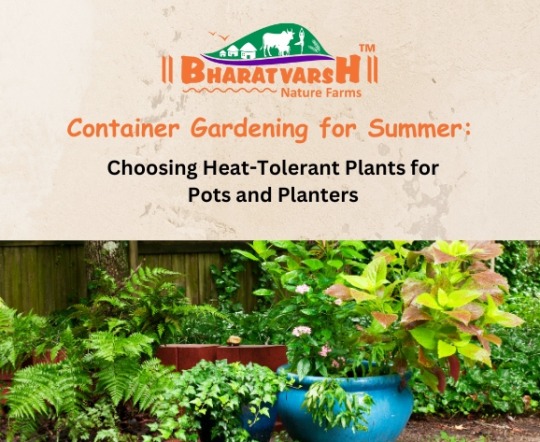
Summer is a time when many gardeners turn their attention to container gardening. Whether you have limited space, a desire for mobility, or simply want to add a touch of greenery to your indoor and outdoor living areas, container gardening offers a versatile and rewarding solution. However, the scorching heat of summer can pose a challenge for plants, making it crucial to select heat-tolerant species that can thrive in pots and planters. In this guide, we will explore the world of container gardening for summer, focusing on choosing the right heat-tolerant plants for your pots and planters.
Let’s start working on a mini nursery for you this summer.
Selecting the Perfect Containers
Before diving into plant selection, it’s important to choose the right containers for your summer garden. Opt for containers made from materials that provide insulation against extreme temperatures, such as ceramic, terracotta, or thick plastic. These materials help to regulate soil temperature and prevent rapid water evaporation. Additionally, ensure that your containers have proper drainage holes to prevent waterlogging, which can be detrimental to the health of your plants.
Compact Heat-Tolerant Plants for Small-Scale Gardens
If you have limited space or want to create a vibrant display on your balcony, small-scale container gardens are the perfect solution. Look for compact heat-tolerant plants that don’t require a lot of room to spread out. Some excellent choices include dwarf varieties of tomatoes, peppers, and eggplants, as well as herbs like basil, thyme, and rosemary. These plants not only tolerate heat well but also provide a delightful culinary experience.
Colorful Annuals for Summer Containers
To add a burst of color and beauty to your summer container garden, consider incorporating heat-tolerant annuals. Zinnias, marigolds, petunias, and celosias are just a few examples of vibrant annual flowers that can withstand the summer heat. These plants offer a wide range of colors, shapes, and sizes, allowing you to create stunning arrangements that brighten up your outdoor spaces.
Edible Delights: Herbs and Vegetables
Container gardening provides an excellent opportunity to grow your own herbs and vegetables, even in the heat of summer. Many herbs thrive in containers and can withstand high temperatures. Herbs like sage, oregano, and lavender are known for their resilience. For vegetables, consider heat-tolerant varieties such as cherry tomatoes, peppers, cucumbers, and summer squash. With proper care and regular watering, you can enjoy a bountiful harvest of fresh, homegrown produce. You can browse our website Bharatvarsh Nature Farms to get started with your mini container garden.
Trailing and Hanging Plants
To make the most of vertical space and create a cascading effect in your container garden, incorporate trailing and hanging plants. These plants not only add visual interest but also maximize the use of limited space. Heat-tolerant trailing plants include cascading petunias, sweet potato vines, trailing nasturtiums, and ivy geraniums. Hanging baskets with colorful flowers or trailing foliage can be suspended from hooks or pergolas, creating a captivating garden display.
Stylish Succulents
Succulents have gained popularity in recent years due to their unique forms and low maintenance requirements. These drought-tolerant plants are ideal for summer container gardening, as they store water in their leaves, enabling them to survive in hot and dry conditions. Echeverias, sedums, and agaves are popular choices for succulent container gardens. Combine different textures and colors to create visually appealing compositions that thrive in the summer sun.
Continue Reading: https://bharatvarshnaturefarms.com/container-gardening-for-summer-choosing-heat-tolerant-plants-for-pots-and-planters/
#balcony#best organic plant nursery in nagpur#best Plant Nursery in Nagpur#Best plant nursery nagpur#Bharatvarsh Nature Farms#Bharatvarsh Plant Nursery In Nagpur#Care Tips for Summer Container Gardens#Container Gardening#Exotic Foliage Plants#extreme temperatures#Fertilizing#GOOD NURSERY IN NAGPUR#greenery#Hanging Plants#Heat-Tolerant#Herbs#Herbs and Vegetables#Long-Lasting Perennials#nursery#Perfect Containers#Pest Control#plant nursery#Plant Nursery in Nagpur#plant selection#plants#Small-Scale Gardens#Stylish Succulents#summer#Summer Containers#summer garden
1 note
·
View note
Text
Can you explain the certification process for organic vegetables and its significance?
The certification process for organic vegetables involves a series of steps and standards to ensure that the produce meets specific organic farming criteria. The process is designed to guarantee that the vegetables are grown and handled by organic principles, promoting sustainability, environmental stewardship, and consumer health. Here's an overview of the certification process and its significance:
Certification Process:
1. Application:
- Farmers interested in organic certification apply to a certified organic certifying agency.
2. Documentation:
- Farmers provide detailed documentation about their farming practices, including crop rotations, seed sources, soil management, pest control methods, and more.
3. Inspection:
- Trained inspectors visit the farm to assess compliance with organic standards. They examine fields, review records, and interview farmers to ensure adherence to organic principles.
4. Review by Certification Body:
- The certifying agency reviews the inspection report and documentation to determine if the farm meets the organic standards.
5. Decision:
- The certification body decides whether to grant organic certification based on the inspection findings and adherence to organic standards.
6. Certification:
- If approved, the farm receives an organic certification, and they are allowed to label and sell their produce as organic.
7. Annual Renewal:
- Organic certification is typically valid for one year. Farmers must undergo annual inspections and submit updated documentation for renewal.
Significance:
1. Consumer Trust:
- Organic certification assures consumers that the vegetables have been produced without synthetic pesticides, herbicides, and genetically modified organisms (GMOs), promoting trust in the quality of the produce.
2. Environmental Protection:
- Organic farming practices prioritize soil health, biodiversity, and sustainable agriculture, contributing to natural resource conservation and reducing environmental impact.
3. Health Benefits:
- Certified organic vegetables are grown without synthetic chemicals, making them a healthier option for consumers. Organic farming often emphasizes nutrient-rich soil, which can result in more nutritious produce.
4. Market Access:
- Certification opens up markets for organic farmers. Many retailers and consumers specifically seek out and trust certified organic products.
5. Supports Sustainable Agriculture:
- Organic farming methods focus on maintaining soil fertility, crop diversity, and ecological balance, aligning with principles of sustainability and long-term agricultural viability.
6. Global Standardization:
- Organic certification follows established international standards, providing a consistent framework for organic farming practices and facilitating global trade.
In summary, the organic certification process ensures that vegetables labeled as "organic" meet specific standards, providing benefits to consumers, the environment, and farmers who adopt sustainable and environmentally friendly agricultural practices.

#organic#farm#farming#organic farm in bangladesh#crop#organic farming#Organic Farming in Bangladesh#Bangladeshi Organic Farming#organic vegetables#organic gardening#organic fertilizer equipment#agriculture farming#agriculture
0 notes
Text
5 Type of Best Organic Fertilizers That You Must Have for Your Home Garden
Organic fertilizers are a substance composed of animal or vegetable matter used alone or in combination with one or more non synthetically derived elements or compounds. These fertilizers are naturally produced and are materials that can be added to soil or plants, in order to provide nutrients and sustain growth. Typical organic fertilizers include all animal waste including meat processing…
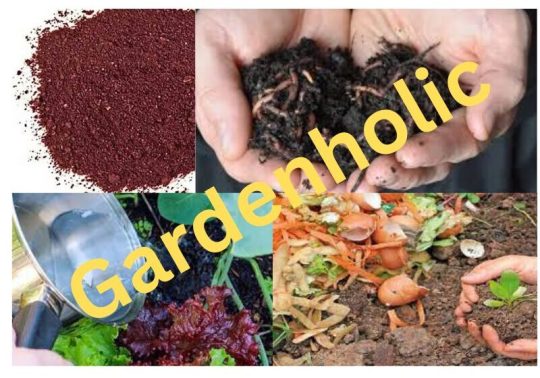
View On WordPress
#best fertilizer for organic gardening#best organic fertilizer brands#certified organic fertilizer list#complete organic fertilizer recipe#different types of organic fertilizers#fertilizers used in organic farming#Gardening tips#homemade organic fertilizer for vegetables#homemade organic fertilizer recipe#how do chemical pesticides affect plants#how do organic farmers fertilize#how to use organic pesticides around children and pets#make your own organic fertilizer#natural fertilizers#organic farming fertilizer types#organic fertilizer#organic fertilizer for flowering plants#organic fertilizer for potted plants#organic fertilizers#organic gardening#organic nitrogen fertilizer homemade#resources for gardeners#top 10 best organic fertilizers
0 notes
Text
#fertilizer#agriculture#organic#organicfertilizer#soil#farming#gardening#bajanas#lawncare#garden#plants#hydroponics#pertanian#horticulture#lawn#grass#kebunbandar#farm#vegetables#growyourown#petani#bajabunga#urbangarden#farmer#plantlover#malaysia#bajabuah#nutrients#banana#orchid
0 notes
Text

0 notes
Text
Best Organic Fertilizers for Vegetables
Here the best organic fertilizers for vegetables: Compost: Rich in organic matter and nutrients, compost improves soil fertility and structure. Worm castings: Vermicompost or worm castings are nutrient-dense and help enhance soil health and plant growth. Fish emulsion: Made from decomposed fish, fish emulsion provides a good source of nitrogen, phosphorus, and potassium. Seaweed and kelp extracts: These natural fertilizers contain trace minerals, growth-promoting hormones, and enzymes that benefit vegetable plants. Bone meal: Derived from crushed animal bones, bone meal is high in phosphorus, which supports root development and flowering. Blood meal: Blood meal is a fast-acting nitrogen-rich fertilizer that stimulates leafy growth in vegetables. Chicken manure: Well-aged chicken manure is a nutrient-rich organic fertilizer that promotes healthy vegetable growth. Bat guano: Bat guano is a potent organic fertilizer that offers a balanced mix of nutrients, including nitrogen, phosphorus, and potassium. Alfalfa meal: Alfalfa meal is a slow-release fertilizer that enriches the soil with nitrogen, potassium, and trace minerals. Green manure cover crops: Planting cover crops like clover, peas, or vetch and turning them into the soil adds organic matter and nutrients. Rock phosphate: Rock phosphate is a natural source of phosphorus, vital for root development, flowering, and fruiting. Feather meal: Feather meal is a slow-release organic fertilizer that provides nitrogen to support healthy plant growth. When using organic fertilizers, it's important to follow the recommended application rates and guidelines provided by the manufacturer. Additionally, consider conducting a soil test to understand the specific nutrient requirements of your vegetable garden and adjust your fertilizer application accordingly. Read the full article
0 notes
Text
UBC Fruit King
Fruit King is the new research technology for the plant growth. It builds strengths and provides energy to the plant tissue. The main reason of pre-dropping is lack of energy, strength and nutritional deficiency in plant.
0 notes
Photo
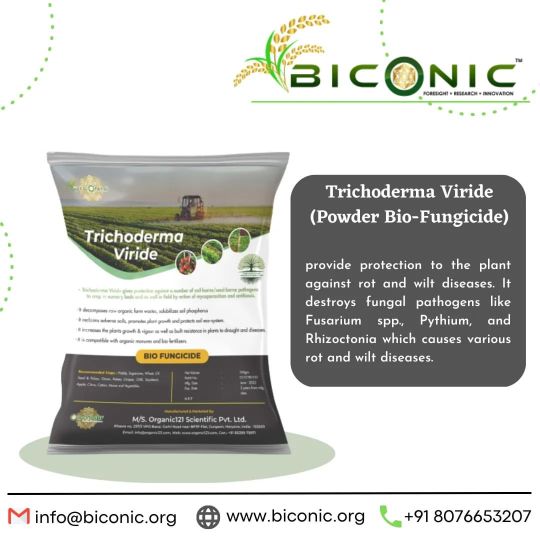
Biconic Trichoderma Viride(Powder Bio-Fengicide) Provide protection to the plant against rot and wilt diseases. It destroys fungal pathogens like fusarium spp. Pythium, and Rhizoctonia which causes various rot and wilt diseases. For Bulk Order:- +91 8076653207 Mail on :- [email protected] @biconic121bio . . . . .#fertilizer #agriculture #organic #organicfertilizer #soil #farming #gardening #bajanas #lawncare #garden #plants #hydroponics #pertanian #horticulture #lawn #grass #kebunbandar #farm #vegetables #growyourown #petani #bajabunga #urbangarden #farmer #plantlover #malaysia #bajabuah #nutrients #banana #orchid (at Biconic Biofertilizers and Biopesticides) https://www.instagram.com/p/CpMs6IOPdjB/?igshid=NGJjMDIxMWI=
#fertilizer#agriculture#organic#organicfertilizer#soil#farming#gardening#bajanas#lawncare#garden#plants#hydroponics#pertanian#horticulture#lawn#grass#kebunbandar#farm#vegetables#growyourown#petani#bajabunga#urbangarden#farmer#plantlover#malaysia#bajabuah#nutrients#banana#orchid
1 note
·
View note
Text
Worth More than Gold (Reader x Laios Touden)
@alex126486 Reader first meeting laios in gold scraping , reader listens laios fascination on monsters and what they tasted like then asking he could cook one for him one day

"Do you remember? Back when we first started out with gold scraping?" You chuckle over at the tallman.
Laios doesn't look up from where he sits preparing the rest of the vegetables from Senshi's garden for you to fry up with the last of the basilisk meat and egg you're making. "Remember what?"
it's always been exciting being around Laios.
You were one of the Touden Party's three mages. Marcille with her explosive fire specialty, Falin with her cleric powers, and you with a specialty in protection and gnomish magic.
You once worked together with him as part of a gold-scraping band.
And it was then that he began talking to you all about his fascination towards monsters.
Little facts about the creatures you would face.
And when you gave no indication of disgust, Laios took the opportunity and ran with it, happily expounding upon monster features for hours upon end.
And when it became clear that you enjoyed his sessions of information -
he began to speculate with you about how monsters tasted.
Would a cockatrice taste more like chicken or more like reptile?
Do strangling plants have sweeter fruits than man-eating plants?
"Who knows? Maybe one day I'll cook you one."
Laios' jaw dropped, and he looked almost about to cry before he nodded seriously.
"That sounds great! What are you thinking of cooking?"
And years later, after traveling with Senshi deeper and deeper into the dungeon, you remember your offhand little promise.
"I once said I'd cook a monster for you. Way back when we were gold scraping."
Laios beams, and you know he never forgot. "I did! I didn't think you had."
"I hadn't, til just now. It must be so much fun for you to discover all the answers to the questions you've had."
Laios nods. "It's a dream come true!"
He glances over at a glum Marcille. "Though of course, saving Falin's the top priority."
"Of course." You nod. "Though if I can be honest, I've really enjoyed the stuff you and Senshi have made."
"That's great!"
"I know Marcille and Chilchuck tend to be squeamish about it-"
("Hey!" Marcille whines)
"-but I dunno. So-called 'normal' animals are pretty weird and gross too, but we eat them. Farming can be nasty too, what with fertilizer, but we don't consider crops gross. It's all just... part of a cycle. If you can make it taste good and it's safe to eat, then why not?"
Laios looks at you with something akin to awe. Chilchuck and Marcille look as though they have lost an ally to madness.
"Anyway, try this. I wanna know if I seasoned it enough." You hurriedly say, seeing Laios still looking at you with that strange expression.
He opens his mouth, seemingly expecting you to... feed him?
So you do, resting the chunk of cooked egg and meat on his tongue, feeling his mouth close around your fingers.
So innocuous, but so intimate, your fingertips compressed as his mouth moves from them, slipping out from the corners.
Part of you is going crazy, thinking one thought - that you've just put your fingers in a teammate's mouth and he just... ate from them. His lips touched your fingers.
His eyes flash up to yours. "Mmmmmm! That's perfectly seasoned."
"Oh! Uh... good." you feel your face heating. Chilchuck smirks over at you. "Good. Those vegetables, then?"
He happily hands them to you.
"Thank you."
"Hmm?"
"For keeping your promise. For cooking. For feeding me."
It's an odd way of phrasing it, but you enjoy the sentiment. "You are welcome, Laios... anytime."
He grins, and leans in close. "You might even be better at cooking than Senshi. It might just be that tallmen have different palates and spices they like, but I love it when you cook."
"I, uh... thanks. That means a lot."
You all but flee to prepare the stir-fry, lowering your gaze, smiling to yourself.
Maybe nothing happened yet, and he's just being nice.
But the friend you've had a crush on since those days of gold-scraping has just practically kissed your hand and complimented your cooking.
And that is worth far more than any gold.
#laios touden x male reader#laios touden x reader#delicious in dungeon headcanons#dunmeshi headcanons#delicious in dungeon x reader#dunmeshi x reader#dungeon meshi x reader#dungeon meshi headcanons#headcanons
198 notes
·
View notes